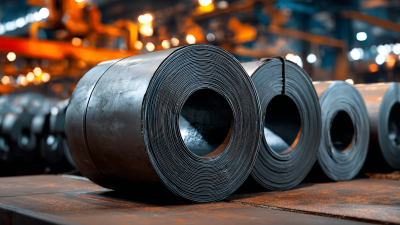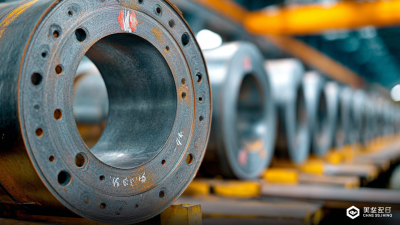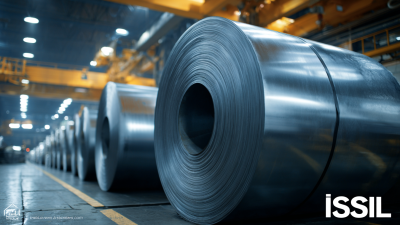
The modern manufacturing landscape is increasingly reliant on advanced materials, and among these, Metal Coil has emerged as a pivotal component in various industrial applications. According to a report by Frost & Sullivan, the global market for metal coils is anticipated to reach USD 50 billion by 2025, reflecting a compound annual growth rate (CAGR) of 5% from 2020. This growth is driven by the surging demand for lightweight and durable materials across sectors such as automotive, aerospace, and construction. Metal Coils offer a multitude of benefits, including enhanced structural integrity, design flexibility, and improved production efficiency. As manufacturers seek to optimize their processes and reduce costs, the strategic adoption of Metal Coil technology is becoming indispensable, paving the way for innovations that cater to the evolving needs of the market.
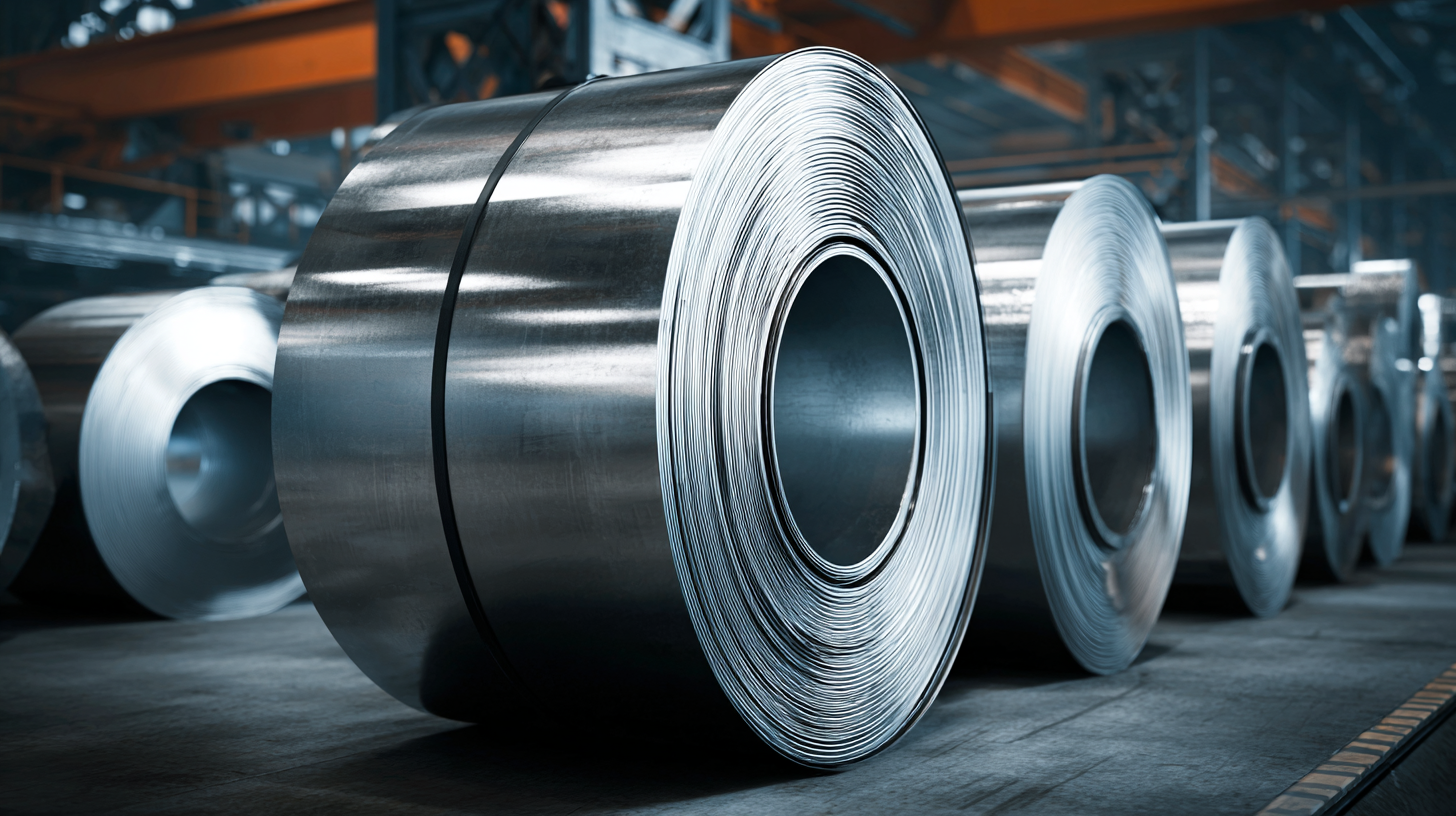
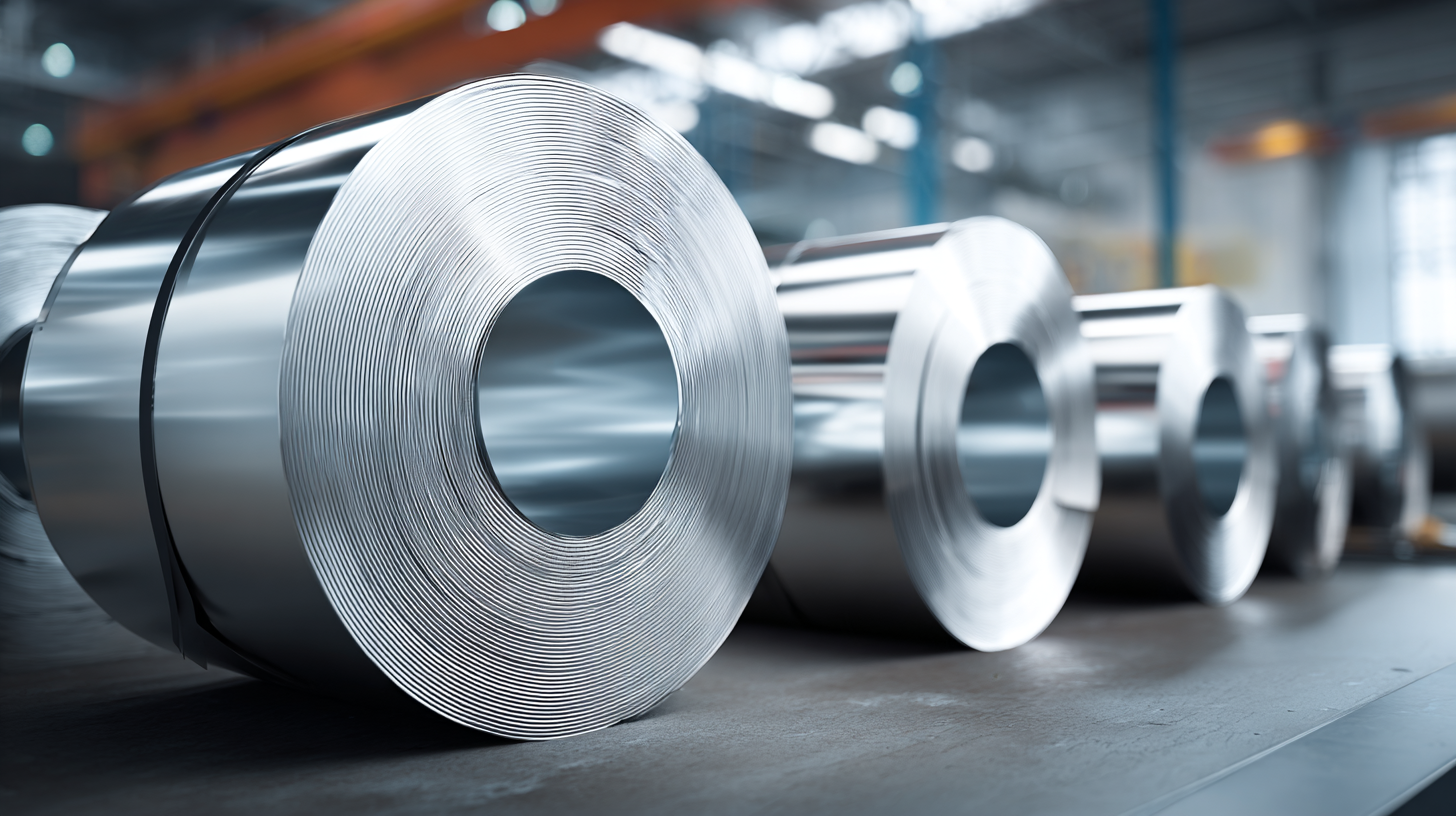 Metal coils have become an integral component in contemporary manufacturing, offering a range of applications across various industries. From automotive to construction, these versatile materials can be found in products such as vehicle frames, roofing materials, and even kitchen appliances. The ability to easily manipulate metal coils into different shapes and sizes enhances production efficiency and reduces waste, making them indispensable in modern manufacturing processes.
Metal coils have become an integral component in contemporary manufacturing, offering a range of applications across various industries. From automotive to construction, these versatile materials can be found in products such as vehicle frames, roofing materials, and even kitchen appliances. The ability to easily manipulate metal coils into different shapes and sizes enhances production efficiency and reduces waste, making them indispensable in modern manufacturing processes.
Tips: When utilizing metal coils, it's essential to consider the material properties, such as thickness and strength, which can significantly impact the final product's durability. Additionally, investing in advanced coil processing technologies can streamline production and improve quality control.
Furthermore, the adaptability of metal coils allows manufacturers to innovate and create customized solutions tailored to specific needs. For instance, specialized coatings can enhance corrosion resistance, while varying alloys can provide superior strength or flexibility. By leveraging the unique characteristics of metal coils, companies can remain competitive in a fast-paced market while meeting the evolving demands of their customers.
Tips: Regularly evaluate the performance of the metal coils used in your production to ensure they meet your operational requirements. Collaborating with suppliers who understand the latest advancements in materials can also offer valuable insights for optimizing your manufacturing processes.
Metal coils have become integral in modern manufacturing due to their cost-efficiency and material savings. One of the primary advantages of using metal coil is the reduction in waste during production. Unlike traditional metal sheets, which often leave significant offcuts, metal coils can be fed directly into machines for processing, maximizing the use of the material. This leads to a more streamlined workflow where manufacturers can effectively minimize scrap and overhead costs.
Additionally, metal coils offer versatility in application, allowing manufacturers to produce a wide range of components with varying thicknesses and widths. This adaptability not only saves material but also reduces the need for inventory storage, as coils can be easily transported and stored. By consolidating operations and inventory, businesses can achieve substantial savings, translating into lower production costs and improved profit margins. The efficient use of metal coil resources ultimately enhances the competitive edge of manufacturers in the ever-evolving industrial landscape.
Advanced metal coil technologies play a pivotal role in enhancing production processes across various manufacturing sectors. By optimizing the properties of metal coils, manufacturers can achieve greater precision and efficiency in their operations. With innovations such as improved alloy compositions and advanced rolling techniques, metal coils can be tailored to meet specific performance requirements, thereby streamlining production workflows and reducing material waste.
Furthermore, the implementation of automated systems and smart technologies in metal coil processing facilitates real-time monitoring and quality control. This integration allows manufacturers to quickly identify and address potential issues, ensuring consistent output and minimizing downtime. As industries increasingly adopt these advanced technologies, the benefits extend beyond just operational efficiency; they also contribute to cost savings and enhanced product quality, making metal coils an indispensable asset in modern manufacturing.
When selecting metal coil for various industries, it is essential to consider several best practices that can enhance both efficiency and product quality. First, understanding the specific requirements of the project is crucial. Different applications may demand varying thickness, width, and material composition, such as stainless steel, aluminum, or copper. Consulting with suppliers about these specifications ensures that the right coil is chosen to meet both functional and aesthetic needs.
Additionally, evaluating the manufacturing processes involved is vital. For instance, industries like automotive and aerospace often require coils that can withstand high temperatures and corrosion, making material properties paramount. Companies should also assess the coil's compatibility with their production techniques, such as stamping, forming, or welding.
Finally, collaboration with experienced suppliers for custom solutions can provide significant advantages, leading to improved productivity and reduced waste in manufacturing processes. By adhering to these best practices, businesses can optimize their use of metal coil and achieve superior results tailored to their operational demands.
In the realm of sustainable manufacturing, the development of metal coil technology is poised to play a crucial role. As industries increasingly look towards eco-friendly solutions, advancements in metal coil production are expected to enhance efficiency while reducing waste. The projected growth in the laser cleaning systems market reflects a broader trend towards cleaner manufacturing processes, which complements the shift towards innovative metal coil applications. The estimated market size of $721.2 million by 2025, growing to $971.9 million by 2033, indicates strong demand for cleaner, more efficient manufacturing techniques.
Tips for manufacturers aiming to adopt sustainable practices include investing in state-of-the-art metal coil technologies that prioritize recyclability and energy efficiency. Collaboration across the supply chain, exemplified by strategic partnerships, can facilitate resource sharing and innovation. It's crucial to stay ahead of future trends by adopting materials and processes that support sustainability goals, as the competitive edge increasingly hinges on environmental responsibility.
Furthermore, as the stainless steel market is set to grow significantly, manufacturers should focus on integrating advanced metal coils into their production systems. Leveraging the benefits of modern metal coil technologies not only meets market demand but also contributes to a greener manufacturing landscape, aligning with consumer preferences for sustainable products.



